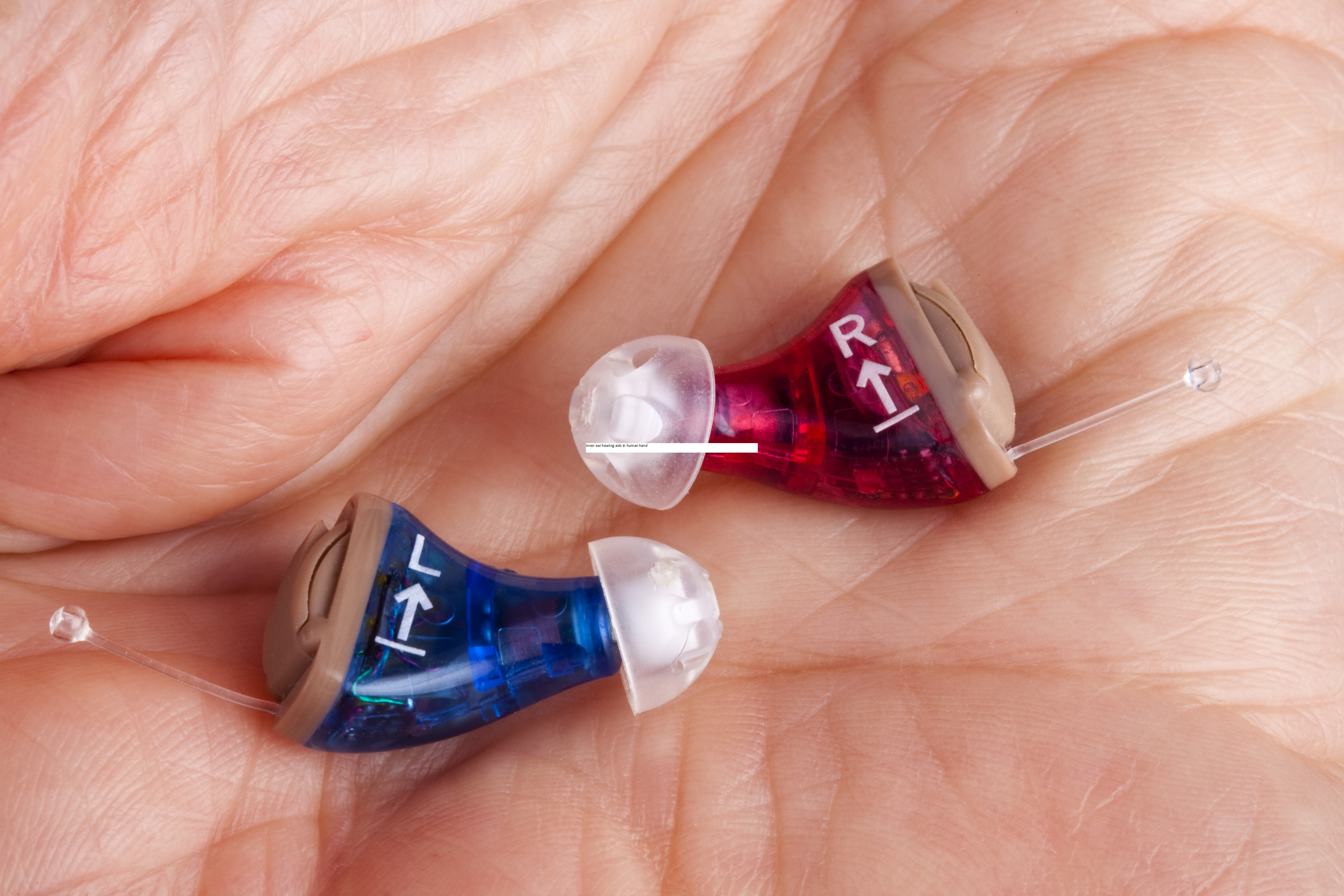By: Teresa Goddard, Senior Consultant, Sensory Team
Recently, JAN’s Sensory Team has received a number of calls involving employees who are having difficulty purchasing or repairing hearing aids. Some employers choose to purchase hearing aids, but it is rare for them to have an obligation to do so as part of a workplace accommodation. Hearing aids are typically considered to be personal use items, meaning they are devices or equipment that are primarily for personal use and needed both on and off the job. Other examples of personal use items include wheelchairs and prosthetic limbs.
In the context of the Americans with Disabilities Act (ADA), the guidance on providing personal use items is not as clear-cut as it may seem at first. There are some rare situations in which an employer may need to consider providing something that would otherwise be considered a personal use item. According to the Equal Employment Opportunity Commission (EEOC), equipment that is specifically designed or required to meet job-related rather than personal needs may be something that employers need to consider and provide, absent undue hardship, even if the item is something that would typically be seen as a personal use item. Likewise, employers may need to provide other reasonable accommodations to employees who are experiencing job-related limitations due to hearing loss, regardless of whether or not they obtain hearing aids on their own.
For more information about personal use items and the ADA, see the excerpt below:
From the ADA Technical Assistance Manual, Title I, Equal Employment Opportunity Commission (EEOC), III. THE REASONABLE ACCOMMODATION OBLIGATION, 3.4 Some Basic Principles of Reasonable Accommodation:
“An employer is not required to provide an accommodation that is primarily for personal use. Reasonable accommodation applies to modifications that specifically assist an individual in performing the duties of a particular job. Equipment or devices that assist a person in daily activities on and off the job are considered personal items that an employer is not required to provide. However, in some cases, equipment that otherwise would be considered “personal” may be required as an accommodation if it is specifically designed or required to meet job-related rather than personal needs.”
“For example: An employer generally would not be required to provide personal items such as eyeglasses, a wheelchair, or an artificial limb. However, the employer might be required to provide a person who has a visual impairment with glasses that are specifically needed to use a computer monitor. Or, if deep pile carpeting in a work area makes it impossible for an individual to use a manual wheelchair, the employer may need to replace the carpet, place a usable surface over the carpet in areas used by the employee, or provide a motorized wheelchair.”
Whether or not an employee acquires hearing aids, accommodations may be needed to ensure effective communication in the workplace. One type of equipment that may be useful as part of an accommodation for an employee with a hearing impairment is an assistive listening device such as an FM system, induction loop system, or an infrared system. These types of devices assist with listening by enabling the user to hear the voice of a speaker who is wearing a microphone by making their voice louder than the background noise in a room. The speaker talks into a microphone or transmitter and the listener either uses the T-switch on their hearing aid or wears a receiver designed to work with the specific assistive listening device. These devices can usually be used with other sound sources as well, such as radios and training videos.
Some assistive listening devices are very simple, and basically consist of a microphone, an amplifier, and an earpiece or headphone jack. Others are more complex. When selecting an assistive listening device, it is helpful to know whether or not the individual uses hearing aids or cochlear implants and if the aids or implants have any special features such as telecoils or Bluetooth connectivity. This will make a difference in the type of listening device that might work best for the employee. Often the employee’s audiologist will be able to provide information about the type of hearing aid as well as individualized equipment recommendations.
More information regarding assistive listening devices is available in JAN’s Searchable On-line Accommodation Resource (SOAR) section of the Website.
For a person with a hearing impairment, one typical workplace task that may require an accommodation is telephone use. Telephone amplification is one type of accommodation that JAN consultants often discuss with employers who are seeking to accommodate employees with hearing loss. This is particularly the case if the employees do not currently use hearing aids or prefer to remove their hearing aids when using the phone. There are many types of telephone amplification devices and choosing the right one for a particular employment setting can be a challenge. A qualified audiologist may be able to provide valuable individualized advice. I often suggest working with the individual and their treating medical providers when appropriate to find a customized solution.
One option I often suggest exploring is whether an amplifier that the employee can adjust on their own would meet their needs. Most people with hearing impairments can hear some types of sounds or frequencies better than others. No telephone amplifier is as customizable or adjustable as a hearing aid, fitted by a qualified audiologist. However, one example of a telephone amplifier with easily adjustable volume across multiple frequencies is the Speech Adjust-a-Tone from Hearsay. This device has six sliders which can be used to adjust the volume of sounds ranging from bass, mid, to treble. Some individuals with hearing aids can also benefit from this product since it can be used with a neck loop. It can also be used with certain types of headsets as well as with a bone-conducting transducer. Since there are multiple models of this product, it may be helpful to consult the manufacturer or a vendor to see which might work best in your setting. You can find more information on telephone amplification on the JAN Website.
If an employee needs assistance purchasing hearing aids, he/she may wish to apply for services through their state Office of Vocational Rehabilitation Services.
There are also organizations that provide hearing aid funding assistance, or refurbished hearing aids, based upon financial need. You can find information about hearing aid funding sources for individuals on the JAN Website.
It is also important to remember that even if an employee obtains hearing aids, the employer may need to consider equipment-related accommodations in order for the employee to use their hearing aids effectively at work. Additional information on accommodation ideas for employees who are deaf or hard of hearing is also available on the JAN Website.










